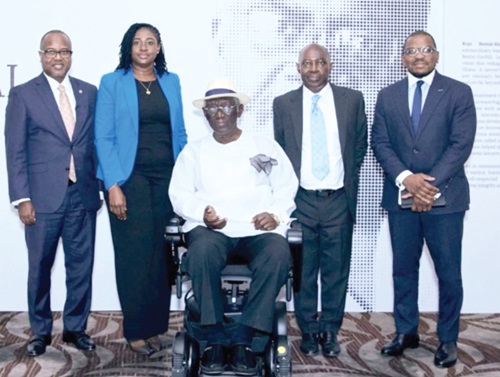A development specialist, Ivor Agyeman-Duah, has urged the government to take decisive action against illegal currency trading, popularly known as black market, to help stabilise the cedi against the major international trading currencies.
He expressed concern about the way the black market was creating exchange rate challenges and said action was needed to save the situation from getting out of control.
Mr Agyeman-Duah, who is also the technical advisor to the Asantehene, was speaking at the Third Kojo Bentsi-Enchill (KBE) Memorial Lecture in Accra.
His lecture was on the topic: “The Evolution of Monetary Policy in Ghana and its Impact on Economic Development.”
It was organised by a leading law firm, Bentsi-Enchill, Letsa & Ankomah. The annual lecture honours the memory of the late Kojo Bentsi-Enchill, a legal luminary who contributed significantly to the transformation of law practice in the country.
Former President John Agyekum Kufuor graced the event. In attendance were academics, legal professionals, government officials, technocrats among others.
It sought to foster dialogue on critical national issues. This year, the lecture focused on the country’s monetary policy, the complex area that plays a crucial role in economic stability, particularly in light of the current economic downturn and challenges.
Collaboration
Further highlighting the dangers of the black market, Mr Agyeman-Duah said sometimes, the universal banks collaborated with the underground markets, thus compounding the problem.
He pointed out that a good monetary policy played a crucial role in the economy for which reason emphasis must be placed on that space.
Mr Agyeman-Duah further said the completion of International Monetary Fund (IMF) programmes should not be seen as a mark of success of a government.
Rather, he said it should be a guide to avoid actions that led the country to seek financial bailouts.
“Ghana has gone to the IMF 17 times to repair the damage to its structures. The lack of discipline to maintain the economy and the dependent on donor budgetary support to keep it alive makes new growth avenues difficult,” the development specialist, said.
Panel discussion
There was also a panel discussion which featured Mr Agyeman-Dua; the First Deputy Governor of the Bank of Ghana, Dr Maxwell Opoku-Afari and a Senior Lecturer at the Department of Economics of the University of Ghana, Dr Priscilla Twumasi-Baffour.

